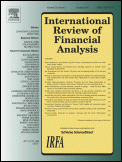
JOURNAL OF PORTFOLIO MANAGEMENT
Scope & Guideline
Advancing the Art of Investment Strategies
Introduction
Aims and Scopes
- Portfolio Theory and Asset Allocation:
Focuses on the development and application of modern portfolio theory, including mean-variance optimization, risk parity, and dynamic asset allocation strategies. - Behavioral Finance and Decision-Making:
Explores the psychological factors influencing investor behavior and decision-making processes, examining how these factors impact portfolio performance. - Risk Management Techniques:
Investigates methods for assessing and managing various types of risks in investment portfolios, including market risk, credit risk, and liquidity risk. - Impact of Macroeconomic Factors:
Analyzes how macroeconomic indicators and trends affect asset prices and portfolio performance, emphasizing the integration of economic data into investment strategies. - Sustainable and Responsible Investing:
Examines the integration of environmental, social, and governance (ESG) factors into investment processes, assessing their impact on portfolio performance and risk. - Private Markets and Alternative Investments:
Covers strategies related to private equity, venture capital, and other alternative investments, focusing on their unique risk-return profiles. - Technological Innovations in Finance:
Investigates the role of technology, including machine learning and big data, in enhancing investment strategies, risk assessment, and performance evaluation.
Trending and Emerging
- Sustainability and ESG Investing:
There is a significant increase in articles addressing the integration of ESG factors into portfolio management, reflecting growing investor demand for socially responsible investment options. - Machine Learning and AI in Finance:
Research focusing on the application of machine learning and artificial intelligence in portfolio management is gaining momentum, emphasizing the potential of technology to enhance investment decisions and risk assessments. - Dynamic and Adaptive Asset Allocation:
Emerging interest in adaptive strategies that respond to changing market conditions, including the use of macroeconomic indicators and real-time data to inform asset allocation decisions. - Risk Management Innovations:
The journal is increasingly publishing works that explore innovative risk management techniques, particularly those that address complex, multi-faceted risks in today's financial environment. - Behavioral Insights in Investment Strategies:
There is a growing body of research that incorporates behavioral finance principles into investment strategies, highlighting the impact of investor psychology on market movements and portfolio outcomes.
Declining or Waning
- Traditional Active Management Strategies:
There is a noticeable decrease in research focusing solely on traditional active management strategies, as attention shifts towards passive investing and factor-based approaches. - Emerging Market Focus:
Research specifically targeting emerging markets has waned, likely due to the increasing complexity and volatility associated with these markets, leading to a preference for more stable investment environments. - Single Asset Class Strategies:
The focus on strategies that concentrate on single asset classes has diminished, with an increasing trend towards multi-asset and diversified portfolios. - Historical Performance Analysis:
While historical performance analysis remains relevant, its prominence has decreased as newer methodologies and frameworks that incorporate real-time data and dynamic strategies gain traction.
Similar Journals

Australasian Accounting Business and Finance Journal
Connecting Scholars and Practitioners in the Australasian RegionThe Australasian Accounting Business and Finance Journal, published by the University of Wollongong, serves as a premier open access platform since 2007 for scholars and practitioners in the realms of accounting, business, and finance. With ISSN 1834-2000 and E-ISSN 1834-2019, this esteemed journal is based in Wollongong, Australia, and has been recognized for its impactful contributions, boasting a Q2 quartile ranking in Business, Management, and Accounting, and a Q3 ranking in Finance as of 2023. The journal has made significant strides in the fields of Economics, Econometrics, and Finance, with commendable Scopus rankings, underscoring its relevance and influence. The journal primarily aims to provide a rigorous forum for innovative research that fosters critical discussions and advancements in these disciplines, making it an invaluable resource for researchers, educators, and students seeking to explore contemporary issues and develop future inquiries.

Journal of Risk
Empowering Research on Strategic Risk ManagementJournal of Risk, published by INCISIVE MEDIA, serves as an essential platform for scholars and practitioners in the fields of finance and strategic management. With an ISSN of 1465-1211 and an E-ISSN of 1755-2842, this journal explores the multifaceted nature of risk, encompassing theoretical frameworks, empirical investigations, and practical applications. Although currently classified in Q4 for both Finance and Strategy and Management categories as per 2023 standards, it provides a crucial forum for innovative research and thought leadership, addressing the challenges faced in understanding and managing risk in today’s dynamic environment. The journal, based in the United States, is committed to advancing knowledge and offering a platform for debate and dialogue in its convergence years from 2011 to 2024. Researchers, professionals, and students are encouraged to contribute their insights to enhance the academic discourse surrounding risk management.

Journal of Alternative Investments
Navigating the evolving landscape of investment strategies.The Journal of Alternative Investments, published by PAGEANT MEDIA LTD, is a prominent academic journal dedicated to the interdisciplinary field of finance and economics, with a specific focus on innovative investment strategies and asset classes. With an ISSN of 1520-3255 and an E-ISSN of 2168-8435, this journal is recognized for its rigorous peer-reviewed articles that delve into empirical and theoretical aspects of alternative investments. Although it currently does not offer open access, the journal serves as an essential resource for researchers and practitioners, showcasing high-quality contributions that can shape investment practices. Operating within the Q3 category as per the 2023 ranking in both Economics and Finance, it holds significant relevance in a rapidly evolving economic landscape. From its base in the United States and extending its influence globally, the Journal of Alternative Investments aims to provide insights that foster dialogue and a deeper understanding of alternative investment domains from 2007 to 2024 and beyond. Whether for academic research or professional application, this platform invites scholars, students, and investment professionals to explore the dynamic and crucial conversations shaping finance today.

JOURNAL OF FINANCIAL RESEARCH
Unveiling Trends in Financial ResearchThe JOURNAL OF FINANCIAL RESEARCH, published by WILEY, stands as a pivotal platform for disseminating innovative research in the fields of finance and accounting since its inception in 1978. With an ISSN of 0270-2592 and an E-ISSN of 1475-6803, this journal aims to address contemporary challenges and trends within the financial research landscape. It has achieved notable recognition, being placed in the Q2 category for both Finance and Accounting in the 2023 rankings, signifying its relevance and impact within the academic community. Although it does not currently offer open access, the journal is accessible through various academic databases, catering to a diverse audience of researchers, professionals, and students keen on advancing their knowledge and understanding of financial systems and methodologies. With an evolving scope that encompasses empirical studies, theoretical frameworks, and practical applications, the JOURNAL OF FINANCIAL RESEARCH is committed to contributing valuable insights into the complexities of financial practices and policies.

Pacific-Basin Finance Journal
Innovating Financial Understanding Across the Pacific BasinPacific-Basin Finance Journal is a prestigious academic journal that focuses on critical developments and innovative research within the fields of finance and economics, specifically tailored to the Pacific region's unique economic landscape. Published by Elsevier, the journal boasts an impressive impact factor and is categorized in the Q1 quartile for both Economics and Econometrics and Finance as of 2023. This indicates its high relevance and position among the top journals in its field, with Scopus rankings reflecting a strong standing in the competitive landscape of finance research, holding the 45th position out of 317 in Finance and the 108th in Econometrics. Established in 1993, the journal is committed to disseminating rigorous theoretical and empirical research findings that enhance the understanding of financial systems in the Pacific Basin. Although the journal is not open access, it provides invaluable insights and comprehensive studies aimed at professionals, researchers, and students alike, fostering a deeper comprehension of the region's economic dynamics and global interconnectedness.

Critical Finance Review
Shaping the future of finance through high-quality research.Critical Finance Review is a premier academic journal dedicated to advancing the field of finance through the publication of high-quality research that spans various dimensions of the discipline. Published by NOW PUBLISHERS INC, this journal has quickly established itself as a leading source of innovative finance scholarship, achieving a notable Q1 classification in the 2023 finance category. Operating under a rigorous peer-review process, the journal ensures the academic integrity and relevance of its content, which attracts contributions from both emerging and established scholars. With an ISSN of 2164-5744 and E-ISSN 2164-5760, it is accessible to a global audience, though it operates under traditional access models. The journal welcomes a diverse range of topics including, but not limited to, risk management, financial markets, and quantitative finance, making it an essential resource for researchers, professionals, and students who are keen to explore the complexities of financial systems and develop new insights in the ever-evolving landscape of finance. Based in the United States, Critical Finance Review holds a significant position within the academic community, fostering a collaborative environment that encourages innovative thinking and practical applications of financial theories.

MATHEMATICAL FINANCE
Pioneering Research in Risk Management and BeyondMATHEMATICAL FINANCE is a prestigious journal published by Wiley, focusing on the interdisciplinary fields of finance, applied mathematics, accounting, and economics. With its ISSN 0960-1627 and E-ISSN 1467-9965, this journal has earned its place in the top tier of academic publications, reflected by its Q1 rankings across multiple categories in 2023, including Accounting, Applied Mathematics, Economics and Econometrics, Finance, and Social Sciences. MATHEMATICAL FINANCE, which commenced publishing in 1991, is recognized for its rigorous peer-review process and its significant contribution to the advancement of knowledge in quantitative finance methodologies and risk management practices. Although it does not currently offer open access, the journal remains an invaluable resource for researchers, professionals, and students seeking to stay abreast of the latest theoretical advancements and empirical studies in mathematical finance. Its impact factor and Scopus rankings further illustrate its high standing within the academic community, making it an essential platform for impactful research and scholarly discourse.

Journal of Investment Strategies
Advancing Knowledge in Finance and ManagementThe Journal of Investment Strategies, published by INCISIVE MEDIA, is a distinguished periodical focusing on pivotal issues within the realms of economics, finance, and management. With the ISSN 2047-1238 and E-ISSN 2047-1246, this journal has been making strides since its inception, presenting innovative research from 2018 to 2024. Designated in the Q2 category for both Economics, Econometrics and Finance and Strategy and Management as of 2023, it exemplifies its role as a crucial platform for scholars and practitioners who aim to disseminate knowledge and innovative strategies in investment. Although currently not open access, it provides robust insights into finance advocacy, economic dynamics, and strategic management practices. Researchers, professionals, and students alike can benefit from the journal's high-quality contributions that stimulate discussions and advance the understanding of complex investment landscapes, making it an essential resource in the pursuit of excellence in these competitive fields.

JOURNAL OF FINANCIAL AND QUANTITATIVE ANALYSIS
Elevating Knowledge in Finance Through Empirical EvidenceJOURNAL OF FINANCIAL AND QUANTITATIVE ANALYSIS, published by Cambridge University Press, is a premier peer-reviewed journal that has been at the forefront of the finance and economics fields since its inception in 1966. With a notable impact factor reflecting its Q1 status in Accounting, Economics and Econometrics, and Finance for 2023, the journal is recognized for its substantial contributions to both theoretical and empirical research. Researchers and practitioners alike benefit from its comprehensive scope, addressing critical issues in financial analysis and quantitative methods. Although the journal does not currently offer open access, it remains widely accessible through institutional subscriptions. The editorial team is committed to fostering rigorous academic discussions that shape the future of finance and economics, making it an essential resource for academics, students, and industry professionals seeking to deepen their understanding of these vital disciplines. For more than five decades, this journal has continued to be an indispensable platform for disseminating influential research, thus solidifying its role as an essential cornerstone in the financial and quantitative analysis community.

International Review of Financial Analysis
Exploring innovative theories in global financial landscapes.The International Review of Financial Analysis, published by Elsevier Science Inc, is a premier journal dedicated to advancing the fields of finance and economics. With an impressive impact factor and ranked in the top quartile (Q1) of both Economics and Econometrics and Finance categories, this journal is recognized for its high-quality research and significant contributions to the discipline. Since its inception in 1992, it has provided a platform for scholars to present innovative theories and empirical studies that address critical financial issues around the globe, making it a vital resource for researchers, professionals, and students alike. Although it does not offer open access, the journal actively engages with contemporary debates in financial analysis, ultimately empowering its readership to contribute to and benefit from the ongoing discourse. With its convergence of financial research and analytical methodologies through 2024, the International Review of Financial Analysis remains a cornerstone in the pursuit of knowledge within the ever-evolving landscape of finance.